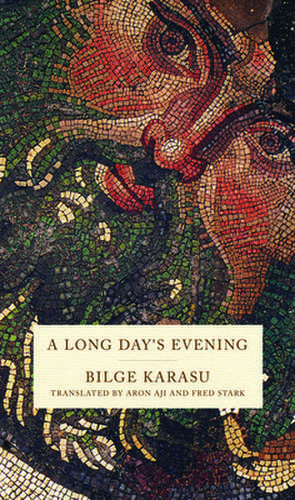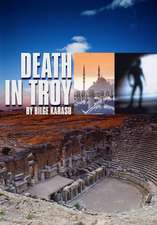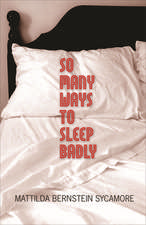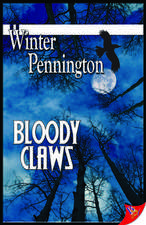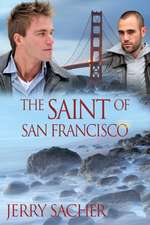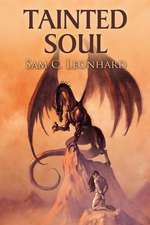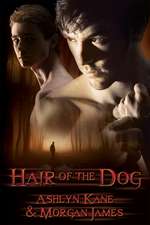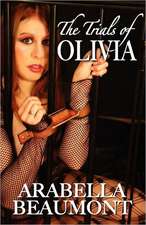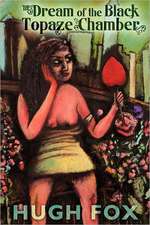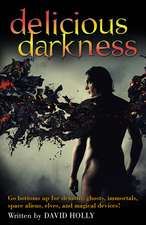A Long Day's Evening
Autor Bilge Karasu Traducere de Aron Aji, PhD Stark, Freden Limba Engleză Paperback – 5 noi 2012
Vezi toate premiile Carte premiată
Literary Award (2013)
"One of Turkey's most interesting modern writers."—Booklist
When the Emperor of Byzantium orders the destruction of all religious paintings and icons, Constantinople is thrown into crisis. Fear grips the monastery where Andronikos, a young monk, is thrown into a spiritual crisis. Amidst stirrings of resistance he decides to escape, leaving behind his beloved Ioakim, who must confront his own crisis of faith and decide where to place his allegiance. The dualities of dogma and faith, individual and society, East and West, are embodied in a story of prohibited love and devotion to the unseen.
Bilge Karasu (1930–1995) was born in Istanbul. Often referred to as "the sage of Turkish literature," during his lifetime he published collections of stories, novels, and two books of essays.
"The 'other' is usually construed as a person or society removed from 'us' by space. But Karasu has chosen to study his ‘other’ across the divide of time, pushing readers to compare the profound identity crises engulfing individuals in ancient Byzantium to those in the early Turkish Republic. In doing so, Karasu shows the futility of separating ourselves from ‘others’ – and the social upheaval that results when we do."--Time Out Istanbul
When the Emperor of Byzantium orders the destruction of all religious paintings and icons, Constantinople is thrown into crisis. Fear grips the monastery where Andronikos, a young monk, is thrown into a spiritual crisis. Amidst stirrings of resistance he decides to escape, leaving behind his beloved Ioakim, who must confront his own crisis of faith and decide where to place his allegiance. The dualities of dogma and faith, individual and society, East and West, are embodied in a story of prohibited love and devotion to the unseen.
Bilge Karasu (1930–1995) was born in Istanbul. Often referred to as "the sage of Turkish literature," during his lifetime he published collections of stories, novels, and two books of essays.
"The 'other' is usually construed as a person or society removed from 'us' by space. But Karasu has chosen to study his ‘other’ across the divide of time, pushing readers to compare the profound identity crises engulfing individuals in ancient Byzantium to those in the early Turkish Republic. In doing so, Karasu shows the futility of separating ourselves from ‘others’ – and the social upheaval that results when we do."--Time Out Istanbul
Preț: 84.93 lei
Nou
Puncte Express: 127
Preț estimativ în valută:
16.25€ • 16.97$ • 13.42£
16.25€ • 16.97$ • 13.42£
Carte disponibilă
Livrare economică 25 martie-08 aprilie
Preluare comenzi: 021 569.72.76
Specificații
ISBN-13: 9780872865914
ISBN-10: 0872865916
Pagini: 167
Dimensiuni: 127 x 213 x 15 mm
Greutate: 0.2 kg
Editura: City Lights Books
ISBN-10: 0872865916
Pagini: 167
Dimensiuni: 127 x 213 x 15 mm
Greutate: 0.2 kg
Editura: City Lights Books
Recenzii
“From 8th century Constantinople to Istanbul in 1960, Karasu’s words travel the temporal distance like a flock of storks, flying to a horizon where history intersects with faith, religious and political, and where memory looks and finds meaning. Only a master can choreograph such a difficult journey . . . and Karasu is one. This is a fascinating novel and a pleasure to read.” -- Sinan Antoon, author of I'jaam: An Iraqi Rhapsody
"This unusual novel tells the story of two Byzantine monks during the controversy over icons. . . . gives a vivid glimpse into a little-known period gripped by religious controversy." -- Gay & Lesbian Review
" . . . A Long Day’s Evening powerfully illustrates that the tension between the personal spirit and the public imperative is a timeless one. . . . emotionally engaging and intellectually satisfying." -- Hurriyet Daily News, Turkey
"The ‘other’ is usually construed as a person or society removed from ‘us’ by space. But Karasu has chosen to study his ‘other’ across the divide of time, pushing readers to compare the profound identity crises engulfing individuals in ancient Byzantium to those in the early Turkish Republic. In doing so, Karasu shows the futility of separating ourselves from ‘others’ – and the social upheaval that results when we do." -- Time Out Istanbul
"City Lights has published their second Bilge Karasu novel, A Long Day’s Evening, translated by Aron Aji with Fred Stark. The novel, according to translator Aji’s preface, 'is one of those rare works that alter a nation’s literature.' Karasu, a translator himself, introduced his own peculiar experimentalism to Turkish literature by, for example, not using the conjunction 've' [and] in the original, superficially because of his stalwart rejection of any vocabulary borrowed from other languages--'ve'comes from Arabic--and, on a deeper level, Aji suggests, because 'the gesture carries an existential significance as well.' The novel recounts the personal consequence of Leo III’s outlawing of all religious paintings and icons on monk Andronikos in the 8th century before ending with a semi-autobiographical short story set in 1960s Istanbul."--Molossus
"One might be tempted to read the story of Andronikos and Ioakim as an allegory for the traumas engendered by emerging political identities. In fact, though the reader is asked to sympathize with the weak and idealistic, caught up in struggles waged from above, Karasu’s own words betray (perhaps inevitably) an acquiescence to power, whose attempts at 'purity' can shape not just the political domain but also the language with which one encounters the world at large."--The American Reader
"This unusual novel tells the story of two Byzantine monks during the controversy over icons. . . . gives a vivid glimpse into a little-known period gripped by religious controversy." -- Gay & Lesbian Review
" . . . A Long Day’s Evening powerfully illustrates that the tension between the personal spirit and the public imperative is a timeless one. . . . emotionally engaging and intellectually satisfying." -- Hurriyet Daily News, Turkey
"The ‘other’ is usually construed as a person or society removed from ‘us’ by space. But Karasu has chosen to study his ‘other’ across the divide of time, pushing readers to compare the profound identity crises engulfing individuals in ancient Byzantium to those in the early Turkish Republic. In doing so, Karasu shows the futility of separating ourselves from ‘others’ – and the social upheaval that results when we do." -- Time Out Istanbul
"City Lights has published their second Bilge Karasu novel, A Long Day’s Evening, translated by Aron Aji with Fred Stark. The novel, according to translator Aji’s preface, 'is one of those rare works that alter a nation’s literature.' Karasu, a translator himself, introduced his own peculiar experimentalism to Turkish literature by, for example, not using the conjunction 've' [and] in the original, superficially because of his stalwart rejection of any vocabulary borrowed from other languages--'ve'comes from Arabic--and, on a deeper level, Aji suggests, because 'the gesture carries an existential significance as well.' The novel recounts the personal consequence of Leo III’s outlawing of all religious paintings and icons on monk Andronikos in the 8th century before ending with a semi-autobiographical short story set in 1960s Istanbul."--Molossus
"One might be tempted to read the story of Andronikos and Ioakim as an allegory for the traumas engendered by emerging political identities. In fact, though the reader is asked to sympathize with the weak and idealistic, caught up in struggles waged from above, Karasu’s own words betray (perhaps inevitably) an acquiescence to power, whose attempts at 'purity' can shape not just the political domain but also the language with which one encounters the world at large."--The American Reader
Notă biografică
Author Bio:
Bilge Karasu (1930-1995) was born in Istanbul. Often referred to as "the sage of Turkish literature," he is regarded as the preeminent Turkish modernist writer. During his lifetime, Karasu published collections of short stories, novels, and two books of essays. His novel, Night, was published in English translation by Louisiana State University Press in 1994 and was awarded the Pegasus Prize for Literature. City Lights published Death In Troy in 2002, and in 2004 New Directions published The Garden of the Departed Cats.
Translator Bios:
Aron Aji, a native of Turkey, has translated works by Bilge Karasu, Murathan Mungan, Elif Shafak, and Latife Tekin, including two book-length works by Bilge Karasu: Death in Troy (City Lights, 2002), and The Garden of Departed Cats (New Directions, 2004), which received the 2004 National Translation Award, sponsored by ALTA. Aji is also the recipient of a 2006 National Endowment for the Arts Literature Fellowship for his translation of Karasu's A Long Day's Evening.
Fred Stark is an American translator who has resided in Turkey for many years. His translations include works from many of Turkey's most prominent authors, including Bilge Karasu and Murathan Mungan, and he regularly translates commentary and interviews with cultural figures and artists, such as Hale Tenger.
Bilge Karasu (1930-1995) was born in Istanbul. Often referred to as "the sage of Turkish literature," he is regarded as the preeminent Turkish modernist writer. During his lifetime, Karasu published collections of short stories, novels, and two books of essays. His novel, Night, was published in English translation by Louisiana State University Press in 1994 and was awarded the Pegasus Prize for Literature. City Lights published Death In Troy in 2002, and in 2004 New Directions published The Garden of the Departed Cats.
Translator Bios:
Aron Aji, a native of Turkey, has translated works by Bilge Karasu, Murathan Mungan, Elif Shafak, and Latife Tekin, including two book-length works by Bilge Karasu: Death in Troy (City Lights, 2002), and The Garden of Departed Cats (New Directions, 2004), which received the 2004 National Translation Award, sponsored by ALTA. Aji is also the recipient of a 2006 National Endowment for the Arts Literature Fellowship for his translation of Karasu's A Long Day's Evening.
Fred Stark is an American translator who has resided in Turkey for many years. His translations include works from many of Turkey's most prominent authors, including Bilge Karasu and Murathan Mungan, and he regularly translates commentary and interviews with cultural figures and artists, such as Hale Tenger.
Descriere
Turkey's great experimental modernist pens a philosophical novel in three parts about desire, faith, and the psychology of prohibited love.
Premii
- Literary Award Finalist, 2013
